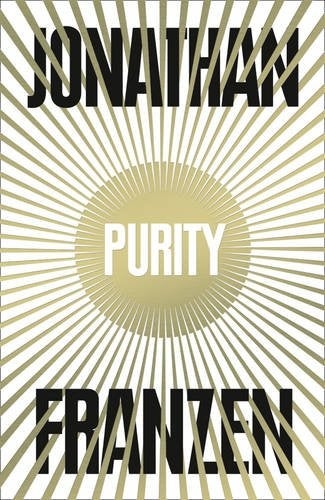Purity, by Jonathan Franzen - book review: Ventriloquist flies the nest
Fourth Estate - £20

Jonathan Franzen has always been one for capturing the zeitgeist, although as it took him six years to write his latest novel Purity, there’s no guarantee that it will always be the current one. In his fifth novel, Purity Tyler, aka Pip, lives in a squat in Oakland with a group of Occupy activists. In her bid to unearth the identity of her absent father, she flies to Bolivia to join The Sunlight Project, a group of hacktivist leakers (see what I mean?).
The group is led by Andreas Wolf, whose backstory transports us to 1980s East Berlin. For Franzen, whose last two novels have been almost claustrophobic in their focus on the modern American family, this may seem like quite a departure. But it isn’t unusual for Purity. There’s murder, suicide, espionage and even some missing nuclear warheads. This returns Franzen to the subject matter of his satirical thrillers The Twenty-Seventh City (1988) and Strong Motion (1992). As they were both commercial failures, this choice suggests that he’s out to prove a point.
What Purity proves most, however, is Franzen’s gift for ventriloquism. He might be accused of being too male, but his ability to place you inside his characters’ heads, regardless of their gender, is extraordinary. One of the most memorable sections of Purity comes during Tom’s post-mortem of his marriage. He describes the “logic tree” that underpins his arguments with his wife. “Every utterance of hers gave me multiple options for response,” he says. “Each of which would prompt a different utterance, to which, again, I would have multiple options in responding, and I knew how quickly I could be led eight or 10 steps out on to some dangerous tree branch and what a despair-inducingly slow job it was to retrace my steps.” For anyone who has been in a dysfunctional relationship, moments like this are enough to make you throw up your hands in celebration.
Yet Purity stutters whenever Franzen veers from the reflective to the self-reflexive. Every portrait may be a self-portrait, but at times things can also get “too Franzen”. Towards the end, Pip suddenly declares her love for birds (Franzen is an avid birdwatcher), while Andreas’s observations on the internet quickly start to resemble an essay that Franzen could have written for The New Yorker.
Still, Purity is just as good as Freedom, if not better by virtue of its greater ambition. It could easily have become the third part of a domestic trilogy, and been satisfactory. But, by reaching back into his catalogue, Franzen has been able to jump forwards, and fly the family nest with style.
Subscribe to Independent Premium to bookmark this article
Want to bookmark your favourite articles and stories to read or reference later? Start your Independent Premium subscription today.

Join our commenting forum
Join thought-provoking conversations, follow other Independent readers and see their replies